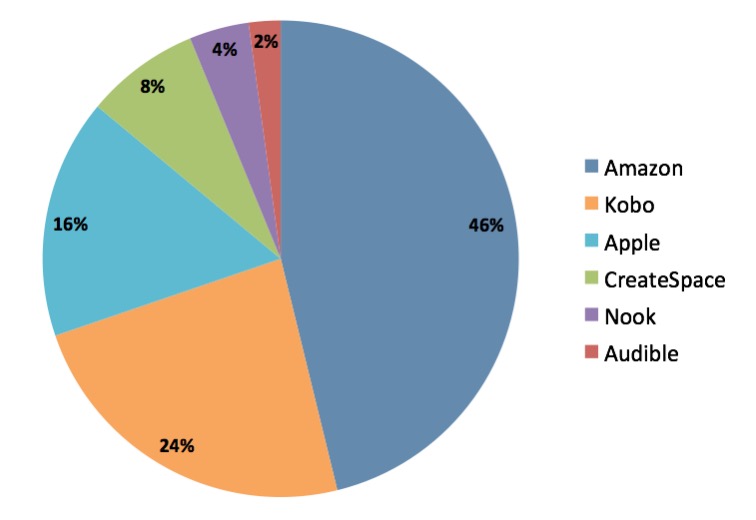More interesting data from Data Guy
here - the document is only the top-level data, about the split between indie/trad and paper/digital in various sectors of the market, but for the first time ever, or so they say, the data includes Amazon data
and Nielsen data. So for the first time, we're looking at a picture of the entire US book market. Accuracy is, of course, unknown, but I would not expect major inaccuracy: I think we can take this as a reasonable accurate impression.
I found it particularly interesting because according to this, 71% of the adult fiction market is now digital (despite tradpub and the newspapers going on about how ebooks are dying and everyone's going back to paper), and 30% of that market is indie. Note that it's not 30% of the digital 71%, but 30% of the
entire US adult fiction market.
I find myself wondering what tradpub is going to do about this, because it demonstrates pretty clearly that indies are cutting into their market share in a nonsignificant way. Given the growth of digital, probably because tradpub's digital prices are so high. Will they continue sticking their fingers in their ears until the ship sinks underneath them (mixed metaphors, pah!) or will this serve as a wake-up call?
I'm looking forward to seeing the detailed data that will be presented at the DBW conference - I hope they make it available online.




